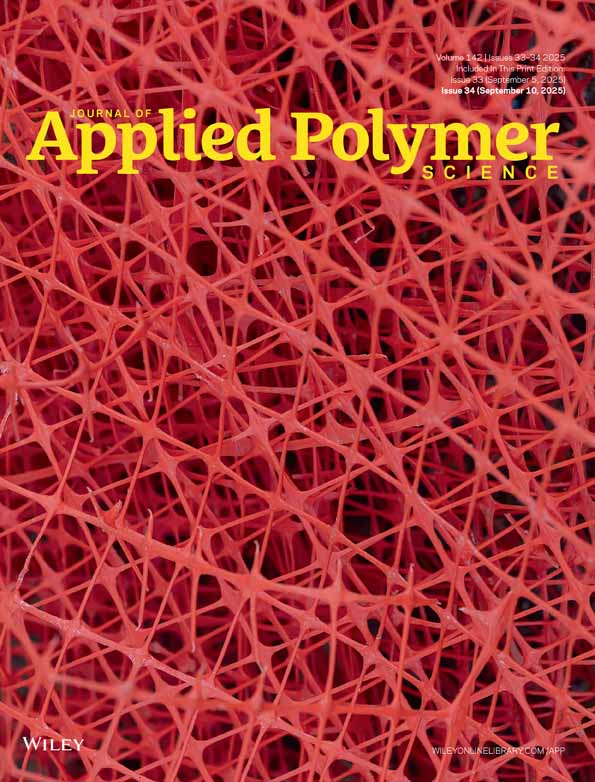Effect of poly(vinyl acetate/vinyl alcohol) copolymer with a thiol end group as a steric stabilizer on dispersion polymerization of styrene
Abstract
In dispersion polymerization of styrene in ethanol, effects of a reactive steric stabilizer, poly(vinyl acetate/vinyl alcohol) copolymer with a thiol end group (P(VAc/VA)-SH), were investigated. In the absence of the thiol end group, the dispersion coagulated at the middle stage of the polymerization, while in the presence of the thiol end group, the polymerization proceeded successfully to result in close to monodisperse particles. The reactive thiol group acts as a site of formation of the block copolymer, that is, polystyrene-b-P(VAc/VA), which is utilized as an effective dispersant. From the measurement on molecular weights during the course of polymerization, two polymerization loci were realized. Addition of butyl methacrylate to styrene affected markedly not only rate of polymerization but also particle size. © 1996 John Wiley & Sons, Inc.




